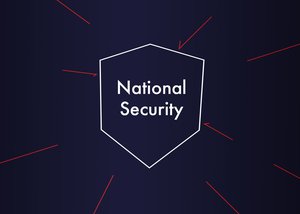Wesley Wark: Canada is entering a new era of geopolitical threats and facing dangers emerging from our natural world. We must think of a new world order in which China is now a superpower and global security is menaced by things like climate change and future pandemics. To meet the security challenges ahead, we need to review and reorganize our intelligence capabilities to ensure a strong system. This includes building up our Canadian intelligence collection abilities, improving our early warning capability — which was shown to be disastrously weak at the outset of the COVID-19 outbreak — and expanding our analysis and reporting system.
Aaron Shull: Geography will not shield us; the rules-based international order is fraying. Canada benefits from multilateral cooperation and security partnerships such as the Five Eyes, but it cannot be dependent on its allies for its own security.
Wesley Wark: The Canadian government and Canadians need to take national security more seriously. We have to pivot away from a purely internal security concern to understanding and responding to global threats.
Aaron Shull: To enhance the ability of our national security system to identify new and pre-eminent threats, we need to reimagine our approach to national security. The government needs to reorganize and reconceptualize its efforts to speak directly to Canadians about the national security threats we face.
To accomplish this requires three key steps: first, the government needs to publish an up-to-date national security strategy to replace the previous effort, which is now 17 years old; second, the prime minister needs to provide Parliament and Canadians with an annual worldwide threat assessment; and third, a comprehensive review of our security and intelligence capabilities needs to be undertaken — this would be the first time such an effort has taken place since the Cold War.
Wesley Wark: In order to address the many complex challenges the country now faces and will face in the future, it is important for the prime minister and Cabinet to demonstrate their direct engagement. To that end, it is time that we reconstitute a dedicated cabinet committee, chaired by the prime minister, on intelligence and security. Other cascading efforts to reorganize how Ottawa handles national security decision making should follow from the comprehensive internal review, which we call for.
Aaron Shull: To break the old model of purely internal decision making, the government should convene a series of expert advisory councils on the following key issues: Canada-China relations and challenges to Canadian national security; climate change and security; pandemic and biosecurity threats; cybersecurity and technological advances; economic security; and border security.
Expert advisory councils, reporting directly to the prime minister through the national security and intelligence advisor, will mark a significant enhancement in our ability to understand the threats to our national security. They will bring a global perspective to bear on these issues.
Wesley Wark: A window of opportunity is at hand. The CIGI special report aims to encourage the government of Canada to pivot to a new national security strategy that recognizes new threats and aims to capitalize on Canadian response capabilities.
Aaron Shull: A new, made-in-Canada approach to national security must be found to protect Canada’s democracy and national interest.
Wesley Wark: Please read the full report to learn about how we must reimagine Canada’s national security strategy. We believe this matters to all Canadians.


